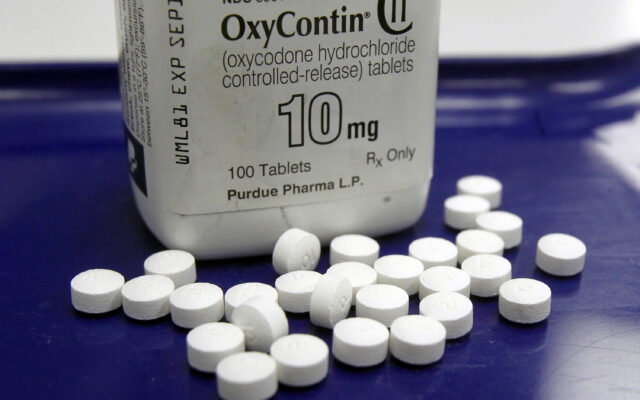
Holdout governments mean Maine could get less than it is entitled to in opioid settlement
By Caitlin Andrews, Bangor Daily News Staff
AUGUSTA — Maine is up against a tight Wednesday deadline to reach a deal with nearly two dozen local governments in a sweeping opioid-related lawsuit or risk getting a lesser share of the payout.
Thirty-nine Maine entities, including cities, towns and counties, have signed on as parties to the $26 billion settlement with Johnson & Johnson and opioid distributors, which were sued by thousands of governments across the country for furthering the opioid crisis.
But only 16 of the Maine entities told Attorney General Aaron Frey that they will agree to the terms by Monday. Holdouts could limit the amount of money Maine receives from the settlement, which could be up to $145 million over 18 years in a state where overdoses hit a new record last year.
“We are close and working in good faith to try and get this addressed,” Frey said. “I am not pessimistic about it yet.”
Parties in the lawsuit originally agreed to a Jan. 4 deadline to reach agreement, but that was pushed until this Wednesday to give people more time, Frey said. It is possible the deadline could be moved again, but Frey said the state does not plan to seek an extension.
The state needs 60 percent of the parties to agree in order to get the highest payout possible. Frey’s office is waiting on some of Maine’s biggest cities and all counties besides Piscataquis, Oxford, Franklin and Aroostook to indicate if they will agree to the terms.
The state also received word in recent weeks that the several school districts may also need to be factored into the settlement, but Frey said conversations on how they might fit are ongoing and they do not factor into the 60 percent threshold right now. An attorney representing the school districts declined to comment.
While some of those places have not formally notified Frey’s office, many are likely to finalize their agreements in the next day or so. Bangor, one of the cities Frey said he had not heard from, passed a resolution allowing the city manager to sign the agreement, city documents show. Augusta, which Frey’s office had also not heard from, did the same last Thursday.
Lawmakers on the Legislature’s health and human services committee briefed on the situation last Thursday were concerned about the settlement’s details, but also the path going forward. The state still needs to decide how to distribute the money and how it will be overseen after the state used some of its tobacco settlement money to pay for MaineCare expenses.
“I think we need to look at more than just population like [the settlement’s negotiators] did with meting it out, like ‘How harmed were they by this epidemic?’” said Rep. Anne Perry, D-Calais.